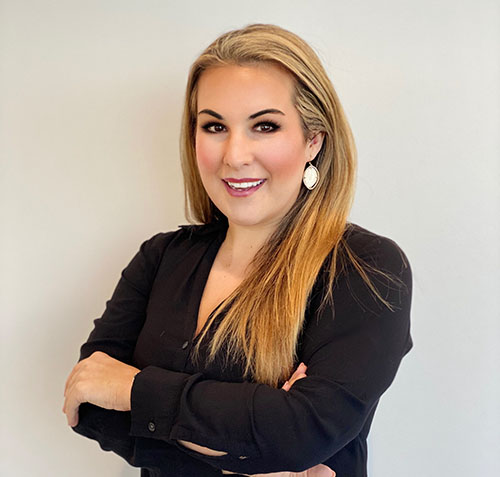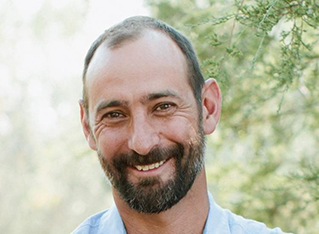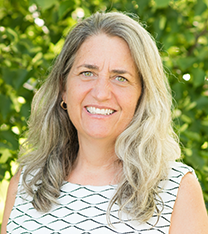
Lauren Wallace is a Principal and the Director of Certifications and Consulting at Epsten Group, Inc. (EGI), where she has helped facilitate sustainability and wellness measures for thousands of projects around the globe. Ms. Wallace is a LEED Fellow, Living Future Accredited, and a WELL Accredited Professional. She is also a WELL Performance Testing Agent, LEED Project Reviewer, LBC Auditor, BREEAM Assessor, Fitwel Ambassador, Parksmart Advisor, and TRUE Zero Waste Advisor. At EGI, she leads a team of experts in multiple rating systems who flexed their skills by taking the EGI headquarter office in downtown Atlanta through six different certifications: Fitwel v2.1, LBC v4.0 Materials Petal Certification, LEED ID+C v4.1, WELL v2.0 Pilot, WELL Health-Safety Rating, and RESET Air. More recently, Ms. Wallace has been focused on how to approach the new-normal with a focus on how the built environment affects overall human health and well-being.
The Silver Lining to a World Under Fire: Our IQ Re IAQ is on the Rise
Description: 57,000 wildfires. 2,460,000 global COVID-19-related deaths. The year 2020, a year we all wish to forget, had a lasting, devastating impact worldwide. For us, it was a pivotal year that turned everyone’s attention towards indoor air quality. Why did it take a world on fire and a global pandemic for our industry to finally start acknowledging indoor air quality concerns? And furthermore, how do we begin to understand something we can’t see, hear, or feel? Confounding and conflicting advice over the entire span of 2020 made our work in indoor air quality that much harder, yet that much more important. The bad news is that SARS-CoV-2 is not the first, nor will it be the last, airborne virus. The good news is our toolkit to understand, measure, improve and maintain indoor air quality has grown rapidly.

Josh Radoff
Josh is a sustainability and decarbonization consultant and educator working across the clean energy and built environment spectrum. He is the Renewable and Sustainable Energy Specialization lead within the Masters of the Environment (MENV) program at CU Boulder where he teaches classes on decarbonization and energy systems. He is also working with ICLEI as a Zero Carbon Cities advisor and as an independent consultant on various district scale sustainable development projects with a focus on electrification, distributed energy, and grid interactivity. Josh was a co-founder of the sustainability group YR&G, was a co-founder of the advocacy group GreenHomeNYC. He was co-chair of the ULI Colorado Healthy Places Committee and is a LEED Fellow. He holds Masters’ degrees in Mechanical and Electrical Engineering from the Royal Institute of Technology in Stockholm and Columbia University in New York.
Decarbonization at Scale
The race is on. Decarbonization must take place at a rapid pace across all sectors of our economy. At least 50% reduction by 2030. And zero carbon by 2040 you were 2050. We know the general blueprint for how to get there, but we also need to revisit out basic assumptions of what each building, district, campus, and city is trying to achieve. Is net zero energy still the right goal? Probably not. Do our renewable procurement methods currently deliver the goals we want to see? Again, likely no. Can we do this without explicit state level or federal policies that enable this transformation? Time will tell.

Sue Reilly, P.E., LEED AP,Building Performance Engineer
Sue has over 30 years of experience in building energy field. She is an expert in energy-efficient design for the built environment and the application of building energy analysis tools. She founded Group14 Engineering, PBC in 1993, and leads the energy design assistance team. In addition, Group14 offers HVAC and lighting commissioning, building enclosure consulting, energy audits and monitoring, and sustainable design services. These services inform our design assistance and help deliver the efficiency goals of the projects.
Lessons for the Twenties
Group14 Engineering, PBC has been modeling the energy performance of buildings since the early 1990’s, and we have never experienced such fast-paced change in this industry as now. In the past few years, we have had the opportunity to work on multiple zero energy projects and today, we talk about electrification with all our clients.
This presentation draws from our experience and highlights our projects, technology and partnerships that are launching us into the 2020’s. Projects include zero energy multifamily and offices. On the technology side, we’ve been working with a multitude of heat pump and energy recovery applications for colder climates. In addition to our traditional clients, we are partnering with jurisdictions and research organization on energy codes and electrification. All this activity bodes well for our industry and our climate